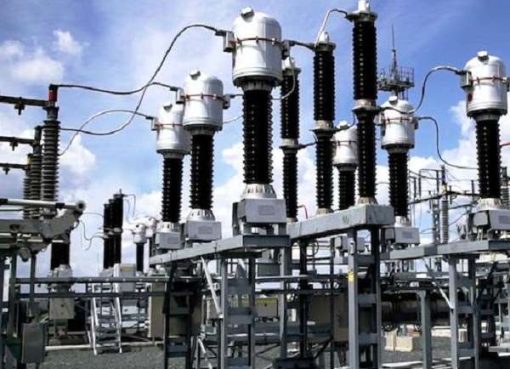The power sub-sector has remained in a swing over the years. It takes a step forward today and a step backwards the next day. The sub-sector’s challenges seem insurmountable as they tend to have defied all known solutions. Taking a critical look at the sector in 20 years of uninterrupted democratic rule.
Oil and gas – Upstream
Nigeria’s oil and gas indust1ry can be said to be living on its past glory. For close to two decades, no major exploration has taken place. The producing assets are the fields discovered over 20 years ago.
Oil firms lack the zeal to prospect for oil for fear of unresolved fiscal regulations and the non-passage of Petroleum Industry Bill (PIB). The producing oil fields, particularly the deepwater assets, were discovered over two decades ago; others were discovered in early 2000s. For instance, Bonga field was discovered in 1996, Erha in 1999, Usan in 2002 and Egina in 2003. These are fields sustaining the country’s daily production.
The government has to revisit these incentives and regulations before oil and gas become unattractive.
Moreover, fossil fuels are increasingly becoming unfashionable. Besides, technology is also making in-roads into what previously seemed impossible. For instance, the cost of producing from shale and oil sands is reducing daily and a lot of consuming countries, such as China, have shale in large quantities.
Technology is advancing into creating alternative energies, such as renewable. These should be of concern to the government and it should make a stitch in time. Robots have begun to take over from human beings. The government should quickly resolve all the knotty areas in the PIB, give the necessary incentives to encourage exploration in the frontier basins and even in the prolific Niger Delta, believed to hold huge undiscovered reserves.
Downstream
To stakeholders in the sub-sector, total deregulation of the downstream arm is the answer.Their concern is the huge cash being spent on subsidy for imported fuel, which depletes the national treasury, denies critical sectors and infrastructure funds and most of all jobs exportation.
The Minster of State, Petroleum Resources, Dr Ibe Kachikwu, said the subsidy on premium motor spirit (PMS) is over N1.4 trillion. The worries became imperative considering that the country has dysfunctional refineries that have the capacity to refine 445,000 barrels daily.
The Lagos Chamber of Commerce and Industry (LCCI) Director-General, Mr Muda Yusuf, said perhaps the biggest burden on the economy is the petroleum subsidy regime.
Yusuf said the government should encourage private sector players to take over the downstream sector. He said: “When this is done, most of the challenges we see as regards subsidy, refineries and others will be adequately addressed. The government should only play a regulatory and not an operational role.
“The government has no business refining petroleum products, retailing or distributing fuel as well as the marketing of these products. We cannot continue to carry that kind of burden in the oil sector.
“It is a big hole in the finances of the government. It puts tremendous pressure on the foreign exchange market and foreign reserves, just as it exerts immense stress on the nation’s treasury.’’
Power
Certainly, Nigeria has huge power deficit and this, undoubtedly, hurts the economy as the industrial and manufacturing sectors spend 30-40 per cent of their total costs of production on power. Also, banks said they spend 25 per cent of their total costs of operation on power. Nigerians depend on generators for electricity as the grid power is unreliable. Every household has at least a small generator. This has health implications due to huge emissions. Nigeria has carried out some transitions in the power sub-sector in its search for sustainable solution but that couldn’t be. To stakeholders, inability to achieve reliable power supply is primarily due to lack of political will to do the right things and improper management of government-owned power firms.
According to records, the first 132KV line in Nigeria was built in 1962 to link Ijora Power Station in Lagos to the Ibadan Power Station. As the years went by, there were no commensurate deliberate activities on a major scale to boost supply infrastructure regardless of the fast-growing population. Even when some efforts were made, they were largely lethargic.
On return to democracy in 1999, Nigerians thought tangible progress would be recorded on consistently. However, it has been excuses, accusations and counter-accusations by the managers of the industry. Previously, the excuse was that the power industry was abandoned to decay for more than 16 years of military governments. When that became untenable, the excuse shifted to lack of gas supply to thermal power plants or inadequate water levels for hydro power plants.
The inadequate gas supply was attributed to vandalism of pipelines by the Niger Delta militants and also low-pricing of gas, which made gas producers shun supply for domestic use. However, these problems have been substantially resolved as militancy and pipe vandalism have drastically reduced, and domestic gas price has improved.
To further boost output, the Federal Government set up the National Independent Power Project (NIPP) in 2005. Also, it created the Niger Delta Power Holding Company Limited (NDPHC) to superintend the NIPP.
NDPHC, established by an Act of the National Assembly, is owned by the three tiers of government. Its aim is to lift Nigeria out of darkness through various interventions across the power supply value chain – generation, transmission and distribution as the National Electric Power Authority (NEPA) and later Power Holding Company of Nigeria (PHCN) failed to provide regular supply before it was unbundled.
The National Council of State (NCS) and the National Assembly approved an initial funding of US$2.5 billion for the National Integrated Power Project (NIPP) from the Excess Crude Oil Account. In 2008, the National Economic Council (NEC) voted US$5.375 billion from the excess crude account as Power Emergency Fund (PEF) to complete the NIPP.
The NDPHC, a child of necessity and baby of the three arms of Nigeria’s government, built several world-standard gas turbine plants, distribution and transmission equipment and lines across the country. This intervention project was monumental. Under the NIPP, more power stations have been built in Nigeria for the first time since the independence.
Besides, the sector has been partially privatised since November 2013, following continuous criticisms of the government having no business in business. With all these steps, power supply has not exceeded 5,222 megawatts (Mw). Sometimes, it drops to below 3000mw with regular occurrence of system collapse due to poor transmission infrastructure.
Challenges
Major challenges that confront the power industry include absence of cost-reflective tariff. Operators of distribution companies have explained the ripple effect of lack of cost-reflective tariff. They said because DisCos are supposed to collect all the money required by generation, transmission and distribution, the tariff should reflect the realities.
According to them, Nigeria has one of the least electricity tariffs in the world and its population continues to grow resulting in increased power consumers. Therefore, funds are needed to expand supply. Besides, a lot of power and revenue is lost to poor transmission and distribution equipment and power theft by unscrupulous customers. Technical and collection losses are huge, they said.
There is also huge metering gap, which the government wants to close through the use of meter asset providers (MAPs), a scheme created to fast-track the metering of all electricity users.
Huge debt
Liquidity problem has been confronting the power industry over time. Electricity distribution companies (DisCos), which generate revenue for the entire value chain through tariffs, don’t collect 50 per cent of money the industry requires leaving a huge financial gap in the industry.
Association of Power Generation Companies (APGC) Executive Secretary, Dr Joy Ogaji, said the Nigerian Bulk Electricity Trading (NBET)-owed the generators N500billion debt as at end of last year.
To avoid extra financial burden, some DisCos reject load allocations to them from the grid. In view of this, Ogaji said load allocation from the national grid to the 11 electricity distribution firms on specific percentage has to be revisited as some of the DisCos reject the load allocated to them due to infrastructure deficiency and poor revenue collection.
According to her, load allocation is counter-productive and doesn’t align with free enterprise. To her, load allocation should be based on willing buyer, willing seller principle where DisCos that have the money to buy more should be given the quantity they want.
She believes that the willing buyer-willing seller approach, when adopted by the System Operator, the arm of the ministry of power in charge of load allocation from the grid, will boost the growth of the power sector and make power available for Nigerians.
Way forward
To make the sector work, the Federal Government should hand over the 40 per cent it holds in the distribution companies to the private sector investors, ensure the investors build facilities and equipment. But this will only happen, when the government has ensured that the tariff structure is cost-reflective and can compare with other climes. The government must ensure that those who own the power assets in generation and distribution segments of the industry are not just fronts of politicians whose interests are to fleece the economy. Government should have the will power to withdraw the licence of any investor is under-performing and not willing to improve when all the above are in place.
The government should revisit some regulations that limit the growth of the industry such as load allocation even to DisCos that don’t have the capacity to accommodate their allocations.
The government should come up with laws that will compel power thieves and equipment vandals to stay away from the nefarious acts or fully face the wrath of the law.
The government should continue with the incremental power policy of the Minister of Power, Works and Housing, Mr Babatunde Fashola. The incremental power policy is an initiative that seeks to put into use existing megawatts as against building new generation facilities. According to the Minister, every one megawatt is defined. To him, Nigeria cannot have 12,000Mw installed and be concentrating on new ones without optimising the existing ones. Under the policy, government will give gas to power stations that have transmission facilities, and transmission facilities to stations that have access to gas but no facilities to evacuate the generated power. The policy has helped in increasing output from Egbema, Gbarain and Omoku, among other power plants.
According to Ugbo, to fast-track the attainment of stable electricity for Nigerians, the Federal Government should seriously consider waving duties on equipment for power projects. It needs to seriously educate contractors on their patriotic duty to deliver, and on time. There is need for a special para-military unit to ruthlessly tackle the activities of vandals, and address the kidnap of the employees of the contractors.
“Host communities also need to be educated on the recurring problem of right-of-way for the routes for the 330kv and 132kv transmission lines of the NIPP. Once when NDPHC diverted the transmission line to the Ihovonbor station in Edo State at a considerable cost because of the presence of a shrine, a new shrine emerged overnight on the new route and the villagers went on demanding a huge amount to relocate it. These things can be best handled with proper enlightenment of the responsibilities of civic duties.
“Also, operatives of para-military agencies, especially men of the National Security and Civil Defence Corps (NSCDC), should be adequately motivated and mobilised to protect power installations from vandals across the country. An asset protection mechanism for the safety of power generation/distribution equipment like pipelines and plants must be established with technologically advanced means applied.”
Source: The Nation










